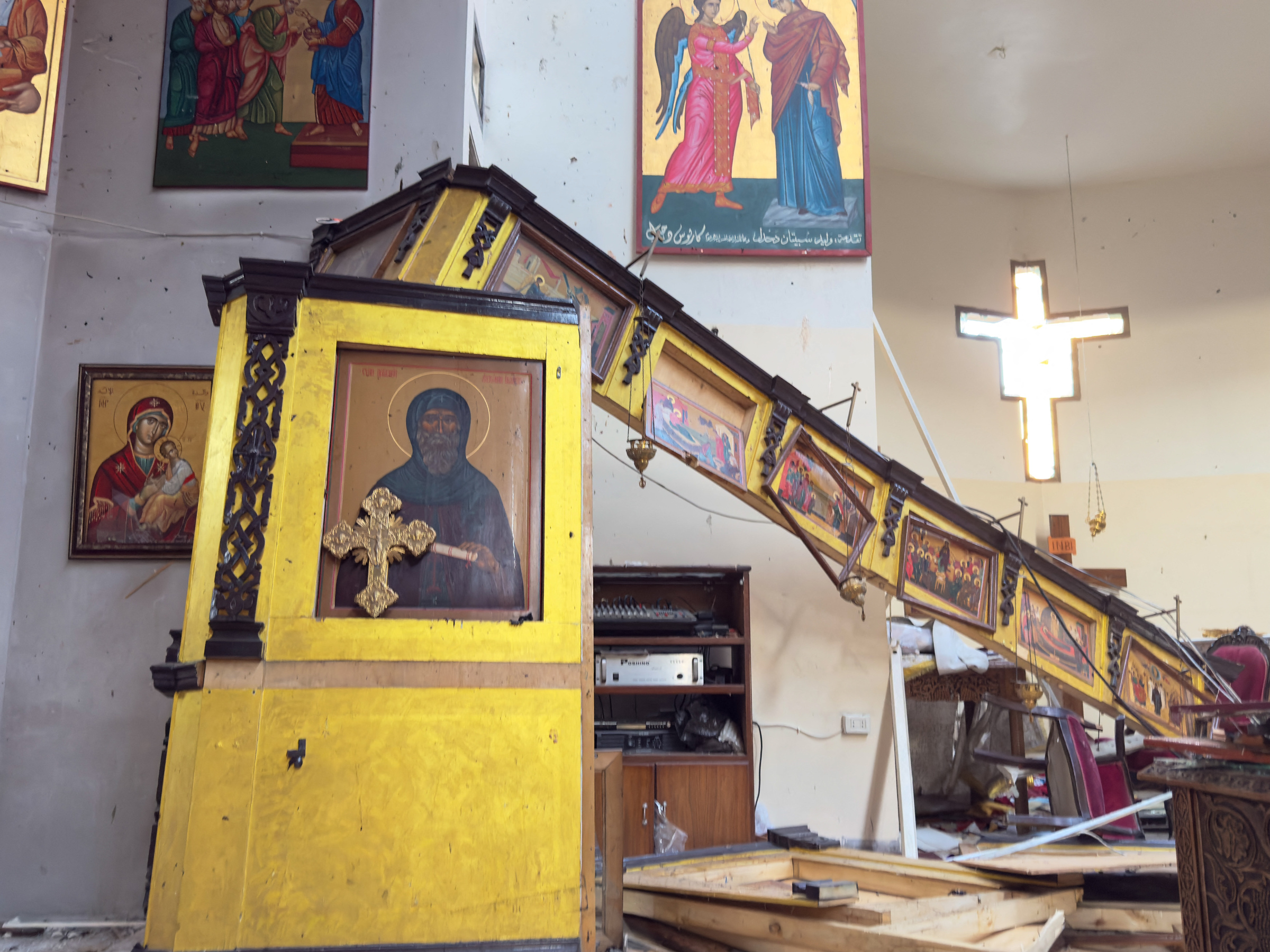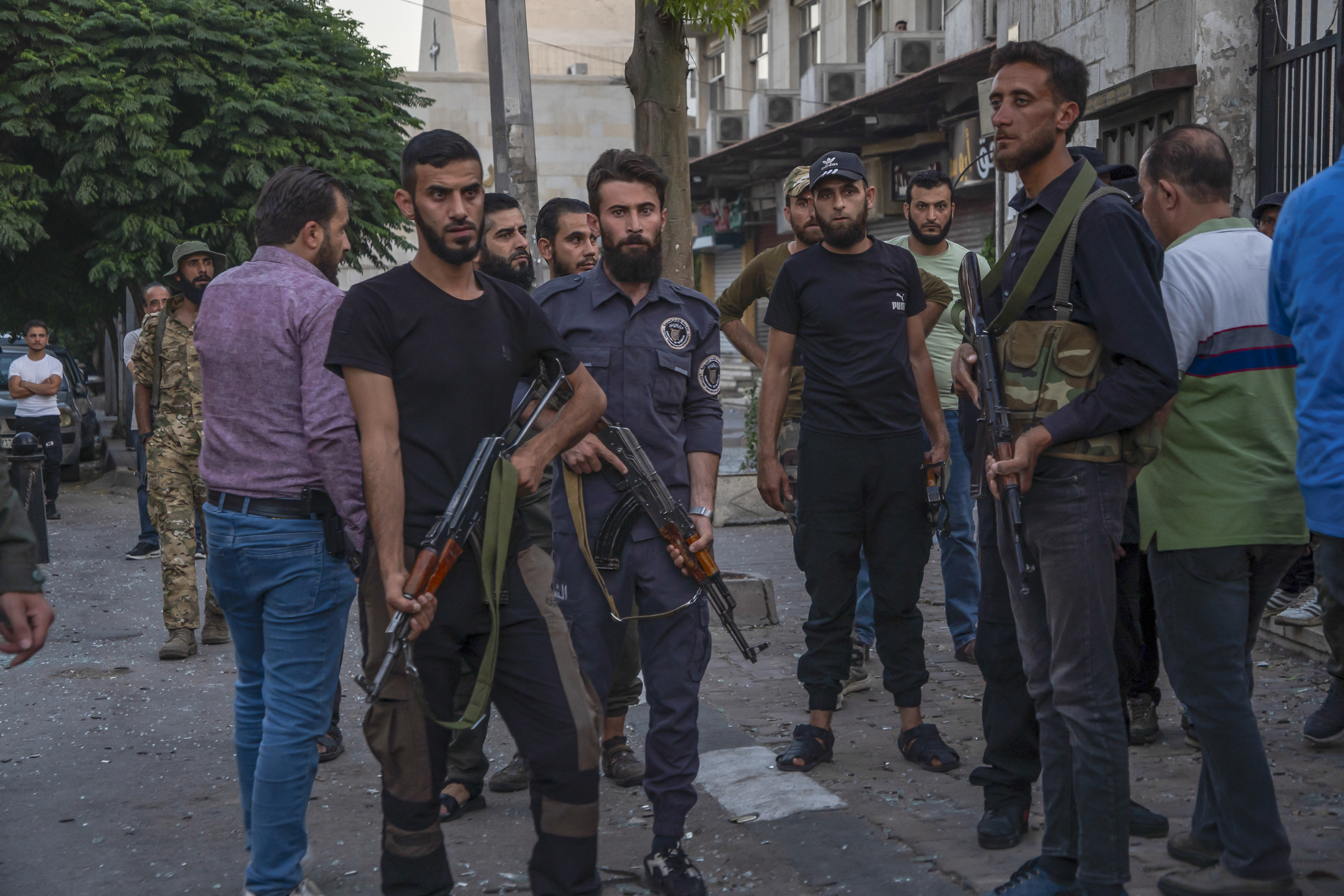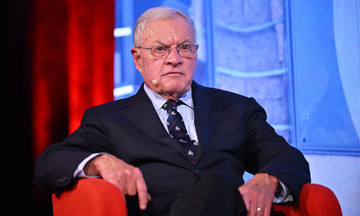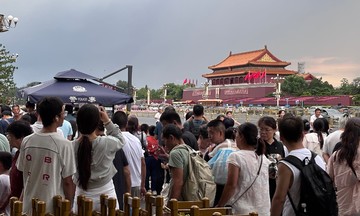A suspected member of the Islamic State (IS) opened fire on worshippers attending a service at the Mar Elias Greek Orthodox Church in Damascus on 22/6 and then detonated a suicide bomb, according to the Syrian Ministry of Interior. The attack killed at least 20 people and injured 52.
Reuters, citing security sources, described two suspects involved in the shooting and bombing, rather than just one as reported by the Syrian Ministry of Interior. No group has claimed responsibility for the attack.
 |
Damage inside the Mar Elias Church in Damascus after the terrorist attack on 22/6. Photo: AFP |
Damage inside the Mar Elias Church in Damascus after the terrorist attack on 22/6. Photo: AFP
"The explosion took place at the church entrance, killing and injuring many people, including those inside the church at the time and those near the area," the Greek Orthodox Patriarchate of Antioch, headquartered in Damascus, said.
The Greek Orthodox Church in Syria condemned those behind the attack as the "hand of the devil", offering condolences to the victims and their families.
The Greek Ministry of Foreign Affairs urged the interim government in Damascus to take decisive action, "holding those involved accountable and ensuring the safety of Christians, as well as other religious groups, allowing everyone to live without fear".
The UN Special Envoy for Syria, Geir O. Pedersen, expressed outrage, calling the attack a "horrific crime" and urged unity against "all forms of terrorism, extremism, incitement, or threats against any community in Syria".
The US ambassador to Turkey, Thomas Barrack, who is also the special envoy for Syria, condemned the terrorist attack as a cowardly act. He affirmed Washington's stance in supporting Syria to build an "inclusive and harmonious" society.
 |
Syrian security forces were deployed to the scene of the church suicide bombing in Damascus. Photo: AFP |
Syrian security forces were deployed to the scene of the church suicide bombing in Damascus. Photo: AFP
This is the first suicide bombing in Damascus since the overthrow of the Bashar al-Assad government in 12/2024.
Over the past 6 months, the interim government of President Ahmed Sharaa has repeatedly claimed to have thwarted terrorist attacks planned by IS. He has frequently affirmed that the new government in Syria will protect the country's minority communities and support national reconciliation.
Despite no longer controlling any territory in the region, IS maintains a presence in Syria, frequently attacking and inflicting casualties on government forces or Kurdish forces. The collapse of the Assad government has significantly altered the situation in Syria, raising concerns among observers about IS potentially exploiting this period to re-emerge.
Thanh Danh (Reuters, CNN)












